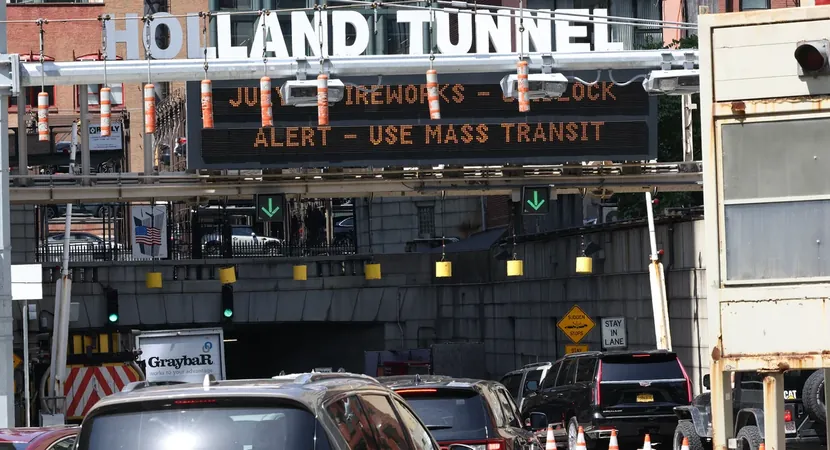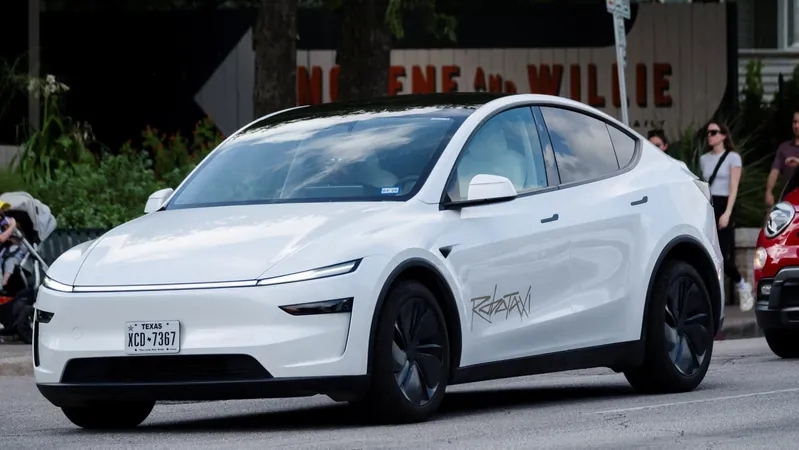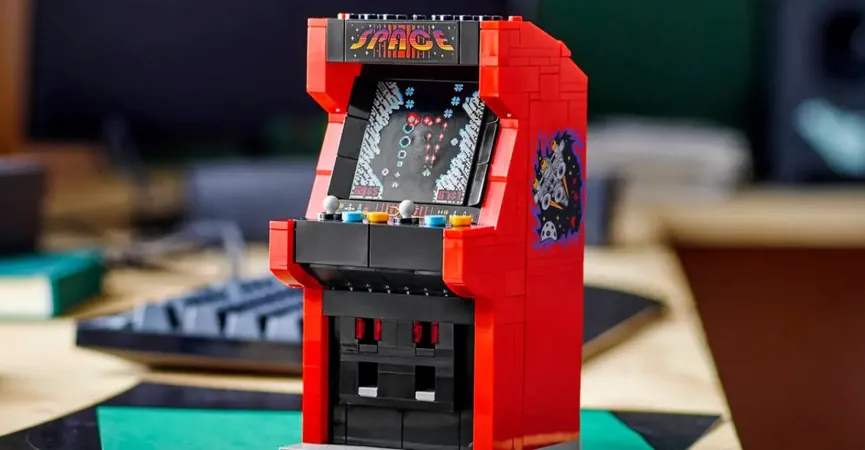
Did New Jersey Drop the Ball on Congestion Pricing Negotiations?
2025-01-10
Author: Ying
Overview of the Situation
In the ongoing battle over congestion pricing in New York City, it appears that New Jersey Governor Phil Murphy and his administration may have missed a critical opportunity for compromise. Last week, the governor's office made several attempts—and ultimately failed—to persuade federal judges to halt the Metropolitan Transportation Authority's (MTA) implementation of congestion tolls set to affect Manhattan drivers.
Federal Mediation and Negotiations
U.S. District Judge Leo Gordon devoted weeks to facilitating discussions between New Jersey and New York aimed at resolving the Garden State's legal contention against this new tolling scheme. However, despite Gordon's efforts to mediate a settlement, negotiations ended in disappointment for New Jersey when the judge ruled against its plea. This decision now paves the way for MTA to activate the tolling infrastructure, commencing operations as scheduled over the weekend.
New York's Offers and New Jersey's Rejection
While the specifics of the negotiations remained confidential, insiders revealed that New York had extended several significant offers to New Jersey. These included an expansion of the existing 'crossings credit'—a credit that currently benefits drivers entering Manhattan from New Jersey via the Lincoln or Holland tunnels—to also cover crossings through the George Washington Bridge. Additionally, New York proposed assistance for NJ Transit, including the commitment to fund half of a projected $1 billion shortfall for a new Port Authority Bus Terminal and $30 million for traffic and pollution mitigation initiatives.
After deliberation, New Jersey's legal team rejected the proposals, seeking a more substantial crossings credit and viewing the pollution alleviation funding as inadequate. Consequently, negotiations crumbled, leading to Judge Gordon’s decision to allow the MTA to proceed with the tolling plan.
Reactions from Officials
MTA Chair Janno Lieber didn't mince words in the wake of the ruling. During a news conference, he remarked, 'We’ll see how New Jersey, after losing again and again and again, adjusts their views.'
Governor Murphy, however, defended his position vehemently. On a recent WNYC broadcast, he characterized the prevailing notion that New York had made generous offers as 'patently absurd,' insisting that New Jersey had consistently sought a fair negotiation.
Financial Strain on NJ Transit
The situation comes at a time when NJ Transit faces its own fiscal challenges. To balance a projected $1 billion deficit in the agency's upcoming budget, New Jersey officials enacted a 15% fare increase across the board and implemented taxes on the state’s most lucrative businesses.
Political Fallout
Political fallout is growing as well. Jersey City Mayor Steven Fulop, who is currently campaigning for the governorship, openly criticized Murphy’s handling of the situation. He argued that New Jersey should have seized the opportunity to negotiate terms that would have benefited the residents who rely on public transport. 'Normal, regular, working-class people don't drive to Midtown daily and pay for parking that exceeds $1,000 a month,' he remarked.
Fulop further suggested exploring the possibility of a New Jersey-only congestion pricing initiative to support transit enhancements. This plan could create alternate funding avenues and meet the transit needs of New Jersey residents more effectively.
Looking Ahead
As tensions rise and the clock keeps ticking on the tolling implementation, all eyes will remain on how both states adjust to the pressures of these infrastructural changes. Will New Jersey find a way to adapt, or will this standoff lead to a longer battle ahead? Only time will tell, but one thing is for sure: the stakes have never been higher for commuters caught in the crossfire.
Stay tuned for more updates on this developing story!


 Brasil (PT)
Brasil (PT)
 Canada (EN)
Canada (EN)
 Chile (ES)
Chile (ES)
 Česko (CS)
Česko (CS)
 대한민국 (KO)
대한민국 (KO)
 España (ES)
España (ES)
 France (FR)
France (FR)
 Hong Kong (EN)
Hong Kong (EN)
 Italia (IT)
Italia (IT)
 日本 (JA)
日本 (JA)
 Magyarország (HU)
Magyarország (HU)
 Norge (NO)
Norge (NO)
 Polska (PL)
Polska (PL)
 Schweiz (DE)
Schweiz (DE)
 Singapore (EN)
Singapore (EN)
 Sverige (SV)
Sverige (SV)
 Suomi (FI)
Suomi (FI)
 Türkiye (TR)
Türkiye (TR)
 الإمارات العربية المتحدة (AR)
الإمارات العربية المتحدة (AR)